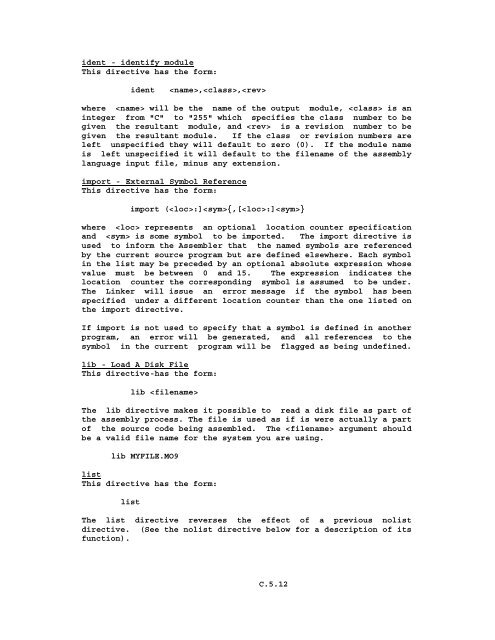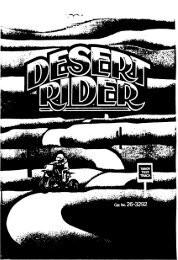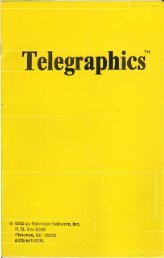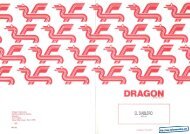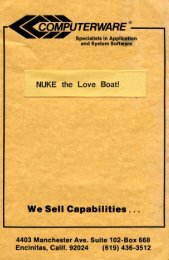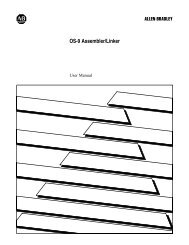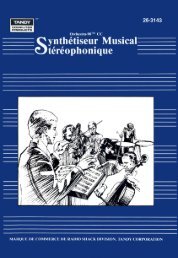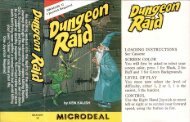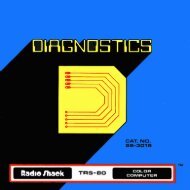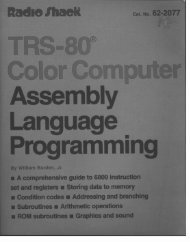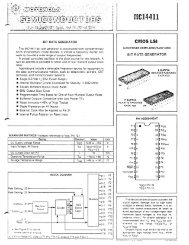INTROL-C COMPILER REFERENCE MANUAL
INTROL-C COMPILER REFERENCE MANUAL
INTROL-C COMPILER REFERENCE MANUAL
You also want an ePaper? Increase the reach of your titles
YUMPU automatically turns print PDFs into web optimized ePapers that Google loves.
ident - identify module<br />
This directive has the form:<br />
ident ,,<br />
where will be the name of the output module, is an<br />
integer from "C" to "255" which specifies the class number to be<br />
given the resultant module, and is a revision number to be<br />
given the resultant module. If the class or revision numbers are<br />
left unspecified they will default to zero (0). If the module name<br />
is left unspecified it will default to the filename of the assembly<br />
language input file, minus any extension.<br />
import - External Symbol Reference<br />
This directive has the form:<br />
import (:]{,[:]}<br />
where represents an optional location counter specification<br />
and is some symbol to be imported. The import directive is<br />
used to inform the Assembler that the named symbols are referenced<br />
by the current source program but are defined elsewhere. Each symbol<br />
in the list may be preceded by an optional absolute expression whose<br />
value must be between 0 and 15. The expression indicates the<br />
location counter the corresponding symbol is assumed to be under.<br />
The Linker will issue an error message if the symbol has been<br />
specified under a different location counter than the one listed on<br />
the import directive.<br />
If import is not used to specify that a symbol is defined in another<br />
program, an error will be generated, and all references to the<br />
symbol in the current program will be flagged as being undefined.<br />
lib - Load A Disk File<br />
This directive-has the form:<br />
lib <br />
The lib directive makes it possible to read a disk file as part of<br />
the assembly process. The file is used as if is were actually a part<br />
of the source code being assembled. The argument should<br />
be a valid file name for the system you are using.<br />
lib MYFILE.MO9<br />
list<br />
This directive has the form:<br />
list<br />
The list directive reverses the effect of a previous nolist<br />
directive. (See the nolist directive below for a description of its<br />
function).<br />
C.5.12


